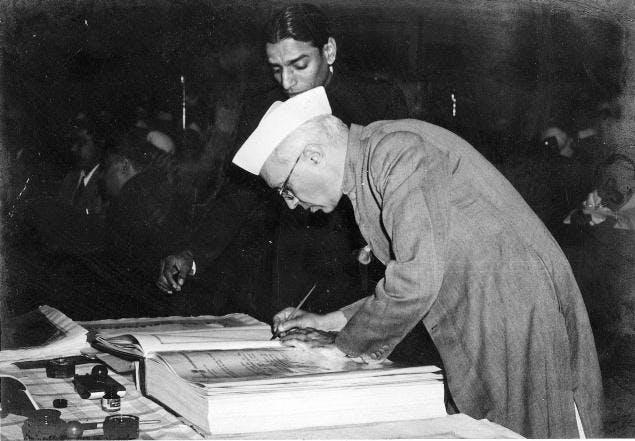Fundamental Rights Given by the Constitution of India
The Indian Constitution gives some basic rights to every person in the country. What are your fundamental rights and how can you protect them?
Prime Minister Jawaharlal Nehru signing the Constitution of India.
Anmol Malhotra • 23 Mar, 2022 • 6 Min
CEFR A2 (Easy)
